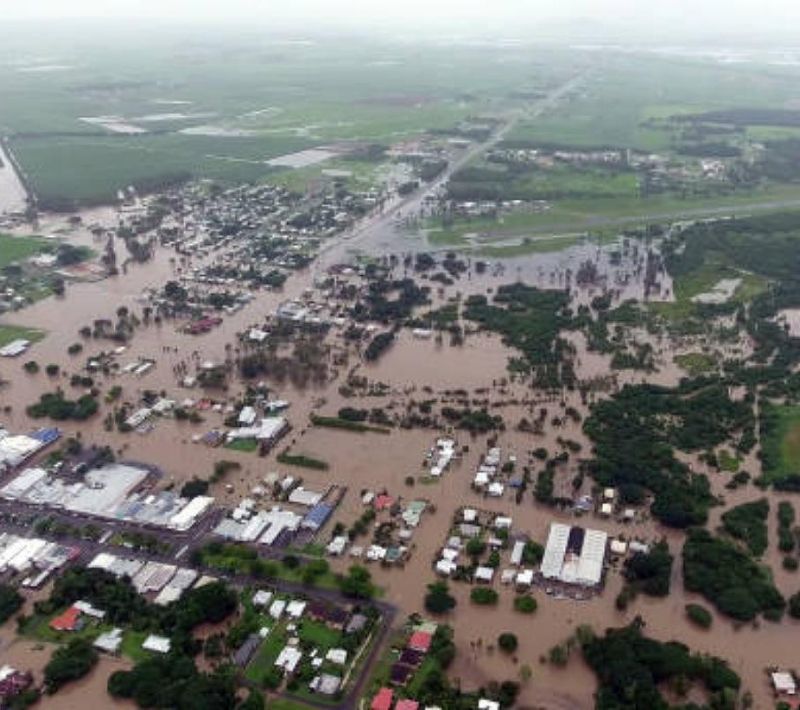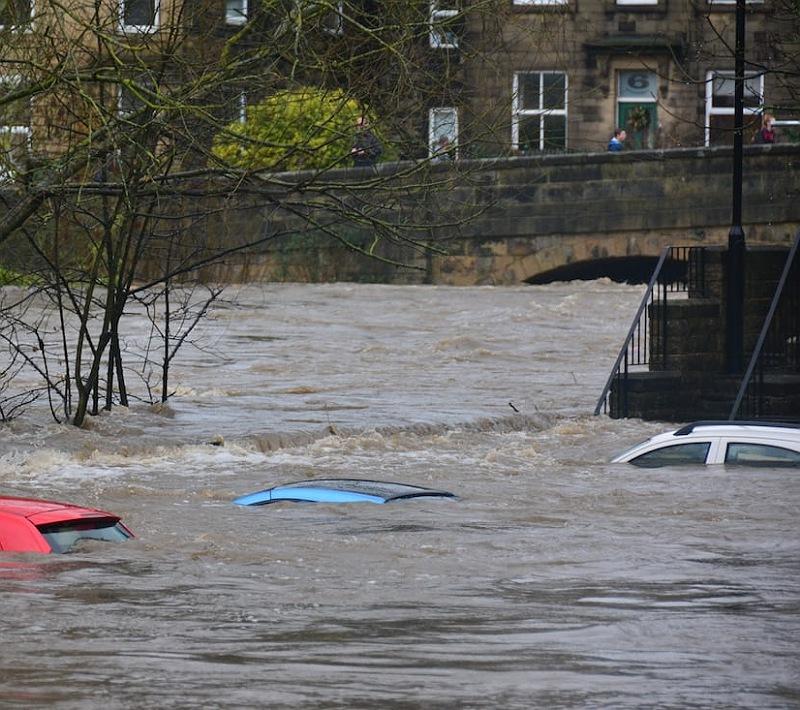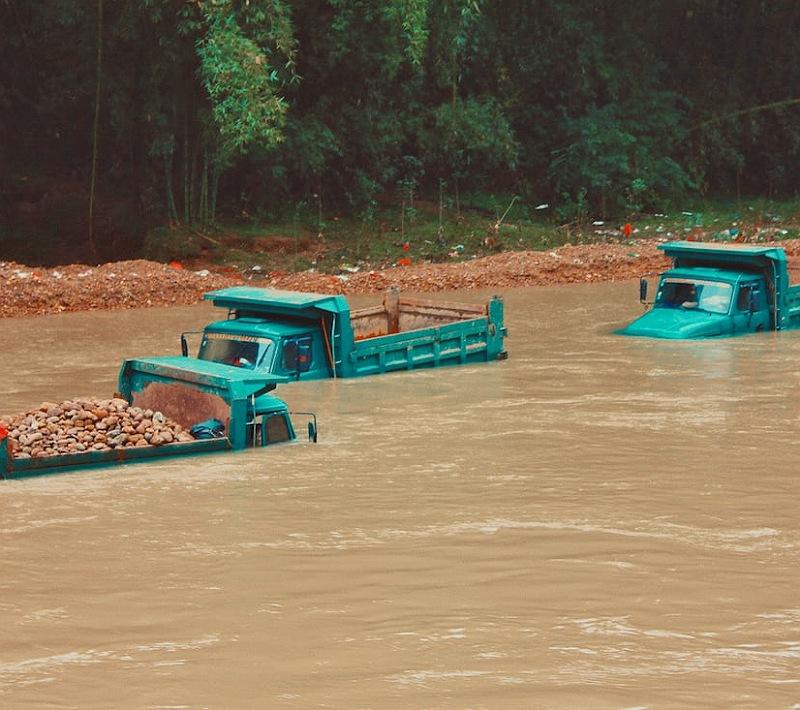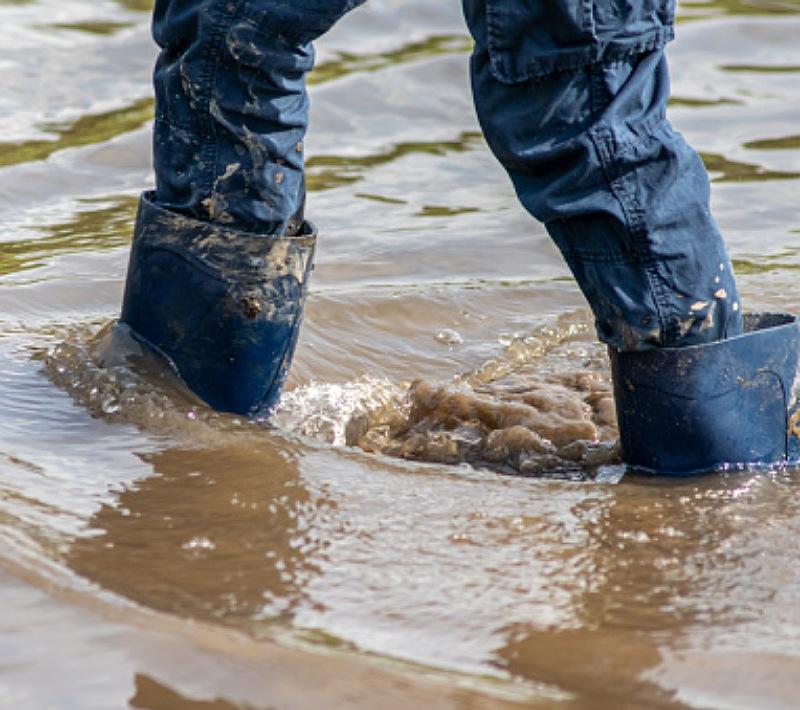15 Tips To Help You Cope With Living in a Flood Zone

With the incessant rainfall this year, it is no surprise that many areas have experienced flooding at varying degrees. It’s even worse for those that live in areas that are already prone to flooding like the coastal regions.
While flooding cannot be stopped since it is a natural phenomenon, it can be managed. Here are fifteen tips to help you cope with living in a flood zone. They’ll be grouped under three stages– before flooding, during flooding, and after flooding.
5 Tips to Note Before Flooding
Getting this part right will save you from a world of trouble when the flood eventually hits. It is important to ensure that you and your family are already fully prepared to handle whatever you might have thrown at you during the flood. Here are 5 pre-flood tips:
1. Disconnect All Your Electricity, Gas, and Water Supplies
After getting informed about the upcoming flood from various news channels, you need to start preparing. The first pre-flood step you need to take is to ensure that you know how to disconnect all your electricity, gas, and water supplies.
It could become extremely dangerous if either your electricity, gas or water supply gets exposed during a flood. This is why it is important to ask your suppliers to show you how to turn them off if you’re not sure how to go about it.
Afterwards, you can use sticky notes or white tape to mark the taps and switches you need to turn off in the advent of a flood. It’ll be faster and easier to remember this way.
2. Check for Insurance Coverage
Before the flood hits your home, you have to check your insurance status for your home, contents, and buildings insurance.
Content insurance covers your personal property like your personal belongings, furniture, jewelry, and your household items if they are lost, damaged, or stolen. It can cover your computer, television, clothes, etc.
When you check your insurance policy, make sure you confirm that you are covered for flooding.
Another detail you should look out for when checking your insurance policy is to confirm if it includes the “new for old” policy.
You need to know if your damaged property will be restored with new ones. Meanwhile, if you live in a rented apartment, you should ask your landlord about your flat’s insurance policy. This way you will know what is and what isn’t covered.
3. Purchase Flood Protection Products
Areas that are prone to flooding are considered to be high-risk areas. If you live in these high-risk regions, you should seriously consider purchasing certain flood protection products that can prevent floods from damaging your home and property.
Flood Protection Products
Flood protection products help to curb flood damage to your belongings. Some of them include:
- Sandbags. Sandbags are great barricades against floods.
- Floorboards. Floorboards can be fixed to frames around your doors and windows. They are also cost-effective as they can be used over again. You can wash, store and use them again.
- Plastic covers. Plastic covers can be used for sealing air bricks.
However, because other areas are also affected, supply may be limited. This is why you should improve by buying your bags and sand. You can also try using plastic bags and pillowcases filled with sand.
You normally find air bricks on external walls near the ground level in brick-built homes. They allow air to circulate through the building.
Plastic covers can prevent flood water from coming in through your air bricks. Ensure you don’t forget to remove the plastic covers once the flood has died down
Benefits of Flood Protection Products
Flood protection products are extremely essential if you want to reduce the damage to your life and properties. Some of its benefits are:
- preventing water from entering your property
- slowing down the rate at which water enters your property
- reducing damage to walls, floors and fixtures, and fittings
- making the clean-up process easier and faster
- You should follow the manufacturer’s instructions to put these products in place when at risk of flooding.
4. Store Emergency Supplies Away Safely
Place all your emergency supplies in a place that is easy to reach. Ensure that they are stored away safely in a place where the flood won’t get to them.
You can also decide to move your food and valuables upstairs. It will most likely be the safest place in your home during a flood.
Don’t forget to close your windows, draw the curtains to protect yourself and your family against flying glass, and turn off your vents before protecting your doorways and low-level tents with sandbags.
5. Contact Help Beforehand
If you have plans to move somewhere else during the flood, ensure you notify your friends, neighbours, and family. Also, contact the person you intend to stay with so they can prepare properly for your coming and not feel awkward when you arrive.
You should also find someone to keep your pets with until the worst is over. Contact them beforehand too.
Remember to park your car in a safe place till the bad weather is over. Preferably somewhere in an open space, away from high walls and trees, so the flood doesn’t make them fall on your car.
5 Tips to Note During a Flood

After making all your necessary arrangements and preparations towards minimizing the damages of the flood on your life and property, you need to know what to do when the bad weather eventually begins.
1. Stay Away from Windows
When the heavy rains start flooding nearby areas, you should make sure you are indoors and staying in the safest parts of your building. In other words, ensure that you keep yourself and your loved ones away from the windows.
2. Keep Yourself Updated
During flooding, you must listen to the TV, and radio and continue checking all the trusted news outlets on social media so you can get timely updates.
When you do that, you will know if the flood levels are gradually rising to dangerous heights and you need to evacuate your home.
3. Only Go Out When Necessary

Except it is of utmost importance for you to step out, don’t go out in the middle of a flood. Stepping out during flooding is extremely dangerous (and no, driving isn’t safe either. Things could get a whole lot worse).
If you must go out during a flood, ensure you inform someone about your activities before leaving the house, and drop an estimated time of how long your activity will take.
4. Turn Off All Utilities When Evacuating
If your local authorities inform you to evacuate or your house starts flooding, don’t forget to turn off your electricity at the main power switch and close your main gas valve before leaving the house.
5. Ration Your Food and Water Supply
During flooding, ration all your previously stored emergency supplies to fit at least one gallon of water per day for each person and each pet in your home. You should store enough supplies that will last for three days at the very least.
5 Tips to Note After a Flood

As soon as the weather starts clearing out again you should take note of the following five tips:
1. Make Enquiries before Returning Home
Make inquiries about whether it is okay to return home before leaving your safe house.
You should only pay attention to trusted news.
When it’s safe, it will be announced publicly so don’t worry about that.
2. Contact Your Insurance Company For Repairs
After the storm blows over, you should contact your insurance company to find out how they wish to carry out repairs to the damages you incurred during the flooding.
You should also find out if they will arrange for the professional cleaning of your home.
3. Inspect All Your Electrical Appliances and Electricity Supply
When you enter your home, first check to see if your electricity main supply is switched off. You can call a qualified electrician to certify this before standing in flood water.
You should also note to not touch any sockets or sources of electricity while you are standing in flood water so you don’t get shocked.
Check that the electricity supply has been switched off at the mains.
Request for a professional electrician to check out all your electrical appliances that have come in contact with flood water before using them.
4. Dress Appropriately While Cleaning Up
While cleaning, make sure you dress appropriately and cover up well so your skin doesn’t come into contact with the flood water.
Flood water can be contaminated with chemicals, sewage, refuse, and even animal waste. This is why you need to disinfect everything that comes into contact with it in your home.
Other important things to note include:
- Washing your hands regularly with disinfectants
- Wearing protective clothing like a waterproof jacket, rubber gloves, trousers, and boots
- Using a face mask while cleaning
- Covering any open wounds or cuts on your body with a waterproof plaster
- Throwing away leftovers that have come in contact with floodwater.
5. Get Rid of the Floodwater
Once the water levels outside your house have reduced below the level inside, you can start eradicating the flood water inside with a pump or bucket.
Note: if you decide to rent a pump and generator to do it yourself, make sure you keep the generator outside so you don’t poison yourself with the carbon monoxide from the generator’s exhaust.
Clean all the surfaces in your home and disinfect them accordingly. Contaminated bedding and clothing need to be washed at a high temperature.
You can dry out the house with your central heating when your heating system has been inspected by a qualified electrician. You can also go further in the drying process by opening your windows, and doors and using fans to air out the house.
If you do decide to use a dehumidifier instead of a fan, you will need to shut your doors and windows.
Conclusion
Living in a flood zone can be very frustrating during the rainy season but applying these easy tips will help make life easier for you. Stay healthy and stay safe out there!
All images are sourced from unsplash.com & istockphoto.com

